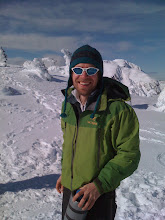JUNEAU — A retired BP employee and a university professor were among those who called for timely action on climate change Friday during a public hearing in Anchorage.
“Just because there’s uncertainty doesn’t mean we ignore the issue,” said Brian Davies, the retired BP employee.
Davies urged members of a state commission studying climate change to develop a thorough “business plan” to address likely impacts and to not get distracted by discrepancies in the projections of impacts.
Carl Tobin, an associate professor of environmental science at Alaska Pacific University, urged the commission to go beyond dealing with the impacts of climate change and consider ways to prevent the impacts from occurring, including reducing greenhouse gas emissions.
Their testimony and others’ defined a split between the sense of urgency expressed by many Alaskans and the limited mandate of the Alaska Climate Impact Assessment Commission, which was formed last year by the Legislature to assess the wide-ranging impacts of climate change and recommend solutions for dealing with them.
The commission met in Fairbanks last December; in Juneau in January; and in Anchorage on Thursday and Friday. It has taken testimony from the public as well as invited experts with wide-ranging expertise.
Alaskans from Barrow to Sitka have shared stories of melting ground and changing weather. But many, if not most, of those who have commented have also offered advice on how the commission should proceed. Specifically, they call for efforts to slow climate change and not just adapt to it.
“It’s time for Alaska to take action,” said Wendy Loya, who testified Friday and said she had studied how carbon is stored in soil during a doctoral program at the University of Alaska Fairbanks.
Loya called climate change an “immediate threat” and described how warming temperatures can release carbon from the soil, creating carbon dioxide and adding to the warming in a giant feedback loop.
The commission’s duties include estimating the costs of climate impacts and coming up with ways to deal with flooding and erosion. Some have argued that another stated duty — to “recommend policies to decrease the negative effects of climate change” — forces the group to consider emissions reductions, but commission members disagree.
At the end of the public testimony Friday, one of the members, Caleb Pungowiyi of Kotzebue, said he appreciated the recommendations but cautioned that the commission wouldn’t necessarily adopt all of them.
“It gives us food for thought,” he said.
Rep. Reggie Joule, a Democrat from Kotzebue and sponsor of the resolution creating the commission, said he and the other members would do what they could as they completed their research and crafted a report that’s due in January.
“This is a huge issue and one of extreme importance,” he said. “We all recognize that, and that’s why we’re here.”
The commission also took testimony Friday from officials with the U.S. Fish and Wildlife Service and the state’s department of transportation. Its next public hearing is scheduled for Kotzebue in June.

1 comment:
Damn Stefan... you're devoted. I can't keep up with the pace at which your posting.
Post a Comment